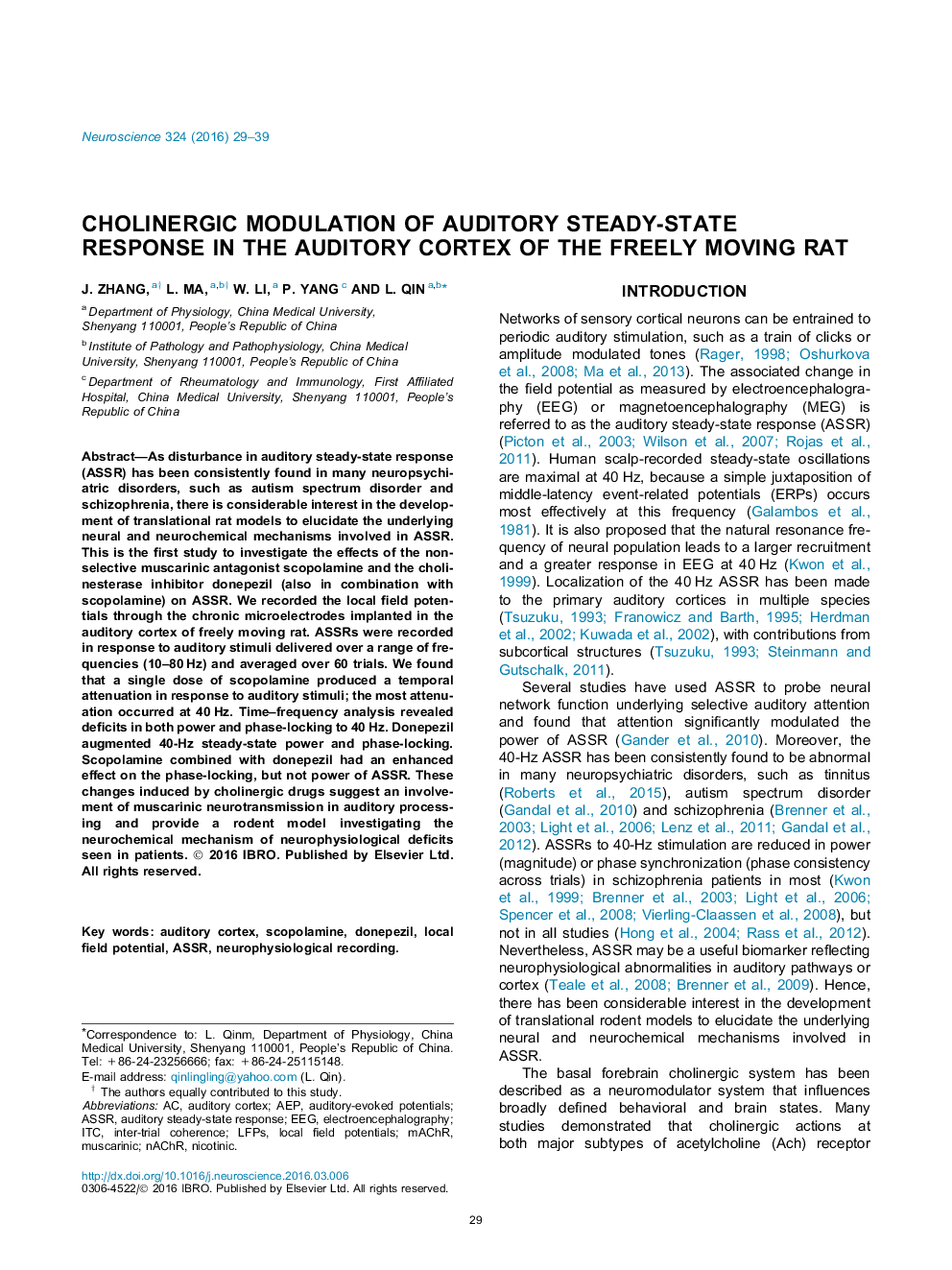| Article ID | Journal | Published Year | Pages | File Type |
|---|---|---|---|---|
| 4337340 | Neuroscience | 2016 | 11 Pages |
•We recorded ASSR through the micro-electrodes implanted in A1 of freely moving rats.•Effects of cholinergic drugs on auditory processing were evaluated by ASSR.•Scopolamine produced attenuation in the power and phase-locking of ASSR at 40 Hz.•Donepezil augmented 40-Hz steady-state power and phase-locking.
As disturbance in auditory steady-state response (ASSR) has been consistently found in many neuropsychiatric disorders, such as autism spectrum disorder and schizophrenia, there is considerable interest in the development of translational rat models to elucidate the underlying neural and neurochemical mechanisms involved in ASSR. This is the first study to investigate the effects of the non-selective muscarinic antagonist scopolamine and the cholinesterase inhibitor donepezil (also in combination with scopolamine) on ASSR. We recorded the local field potentials through the chronic microelectrodes implanted in the auditory cortex of freely moving rat. ASSRs were recorded in response to auditory stimuli delivered over a range of frequencies (10–80 Hz) and averaged over 60 trials. We found that a single dose of scopolamine produced a temporal attenuation in response to auditory stimuli; the most attenuation occurred at 40 Hz. Time–frequency analysis revealed deficits in both power and phase-locking to 40 Hz. Donepezil augmented 40-Hz steady-state power and phase-locking. Scopolamine combined with donepezil had an enhanced effect on the phase-locking, but not power of ASSR. These changes induced by cholinergic drugs suggest an involvement of muscarinic neurotransmission in auditory processing and provide a rodent model investigating the neurochemical mechanism of neurophysiological deficits seen in patients.
